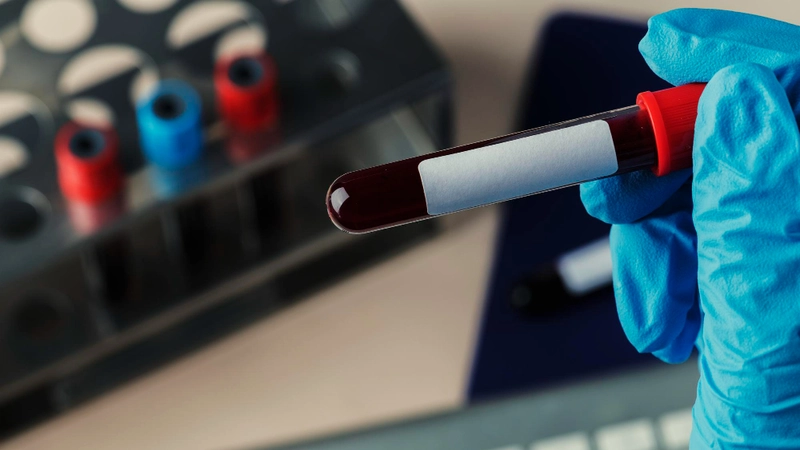- Published on: Mar 17, 2022
- 3 minute read
- By: Second Medic Expert
Pancreatitis: Symptoms, Causes, Diagnosis & Treatment
Pancreatitis is a condition that occurs when the pancreas becomes inflamed. The pancreas is a gland located behind the stomach that produces enzymes that help with digestion. Pancreatitis can be acute, meaning it comes on suddenly and lasts for a short time, or chronic, meaning it develops slowly and can last for months or even years.
Symptoms of pancreatitis include abdominal pain, nausea, and vomiting. In severe cases, pancreatitis can lead to life-threatening complications such as bleeding, organ failure, and shock. Pancreatitis is typically caused by gallstones or alcohol abuse. Other possible causes include certain medications, infections, and autoimmune conditions.
Pancreatitis can be a serious and potentially life-threatening condition. Symptoms of pancreatitis include abdominal pain, nausea, vomiting, and weight loss. Causes of pancreatitis include alcohol abuse, gallstones, and certain medications. Treatment for pancreatitis may involve hospitalization, pain relief, and rest. Pancreatitis can be diagnosed through blood tests, imaging tests, or endoscopic ultrasounds. The pancreas is a small organ located behind the stomach that produces enzymes that help with digestion. Pancreatitis can either be acute, meaning it comes on suddenly and lasts for a short time, or chronic, meaning it develops over time and can last for months or even years. Symptoms of pancreatitis include abdominal pain, nausea, vomiting, fever, and weight loss. If left untreated, pancreatitis can lead to serious complications including death. Treatment for pancreatitis typically involves hospitalization so that the patient can be closely monitored and given intravenous fluids and pain medication.
Pancreatitis is an inflammation of the pancreas. The pancreas is a small organ located behind the stomach that helps the body digest food. Pancreatitis can be acute, meaning it comes on suddenly and lasts for a short time, or chronic, meaning it develops over time and can last for months or years.
Symptoms of pancreatitis include upper abdominal pain that radiates to the back, nausea and vomiting, weight loss, and fever. In some cases, pancreatitis can also lead to life-threatening complications such as bleeding in the digestive tract or kidney failure. Acute pancreatitis is often caused by gallstones or heavy alcohol use. Pancreatitis is an inflammation of the pancreas. The pancreas is a large gland behind the stomach that produces enzymes that help digestion. It also produces hormones, such as insulin, that regulate blood sugar levels. Pancreatitis can be acute or chronic. Acute pancreatitis comes on suddenly and lasts for a short time. Chronic pancreatitis is a long-term condition. In either case, pancreatitis can be very serious and even life-threatening.
Symptoms of pancreatitis include:
• abdominal pain that radiates to your back
• pain that gets worse after eating or drinking
• nausea and vomiting
• fever
• rapid heartbeat
• diarrhea
The pancreas is a large gland located behind the stomach that produces enzymes that help with digestion. When the pancreas becomes inflamed, these enzymes begin to attack the organ itself, leading to pain, swelling, and damage. Pancreatitis can be acute or chronic. Acute pancreatitis comes on suddenly and usually goes away within a few days. Chronic pancreatitis is a long-term condition that can lead to serious complications if left untreated.
The most common symptom of pancreatitis is abdominal pain. This pain may be severe and radiate. Pancreatitis is a disease in which the pancreas becomes inflamed. The pancreas is a gland that sits behind the stomach and produces enzymes that help with digestion. Pancreatitis can be acute, meaning it comes on suddenly and lasts for a short time, or chronic, meaning it persists over time.
Acute pancreatitis usually starts with pain in the upper abdomen that radiates to the back. Other symptoms may include nausea and vomiting, fever, rapid heartbeat, and abnormal blood pressure. Chronic pancreatitis often leads to weight loss, jaundice (yellowing of the skin), diabetes, and digestive problems.
Symptoms of pancreatitis include pain in the upper abdomen that may spread to the back, nausea and vomiting, fever, rapid heartbeat, and weight loss. In severe cases, pancreatitis can lead to bleeding into the gland, tissue death (necrosis), infection, cysts, diabetes mellitus, and pancreatic cancer.
Pancreatitis is a serious condition that can cause severe abdominal pain, nausea, and vomiting. It occurs when the pancreas becomes inflamed. The most common cause of pancreatitis is gallstones. Other causes include alcohol abuse, certain medications, and certain medical conditions. Pancreatitis can be acute or chronic. Acute pancreatitis usually resolves on its own with no lasting effects. However, chronic pancreatitis can lead to serious complications such as diabetes and Pancreatic Cancer. Treatment for pancreatitis typically involves pain relief and rest. In severe cases, hospitalization may be necessary. If you think you may have pancreatitis, it is important to see a doctor right away for an accurate diagnosis and treatment plan.
The main symptom of pancreatitis is abdominal pain. Other symptoms may include nausea, vomiting, and fever. Pancreatitis can be acute or chronic. Acute pancreatitis is a sudden inflammation of the pancreas that typically lasts for a week or two. Chronic pancreatitis is long-term inflammation of the pancreas that can lead to damage of the organ over time. Treatment for pancreatitis typically involves hospitalization and rest. In severe cases, surgery may be necessary to remove part of the pancreas.
Our Services
Request A Callback
Recent Posts
Top 5 Lab Tests You Can Book from Home in India
Aug 07,2025
Is Curd Good or Bad for Acidity?
Aug 02,2025
Can Fatty Liver Be Reversed Completely?
Jul 31,2025
How Your Sleep Schedule Affects Digestion
Jul 28,2025










